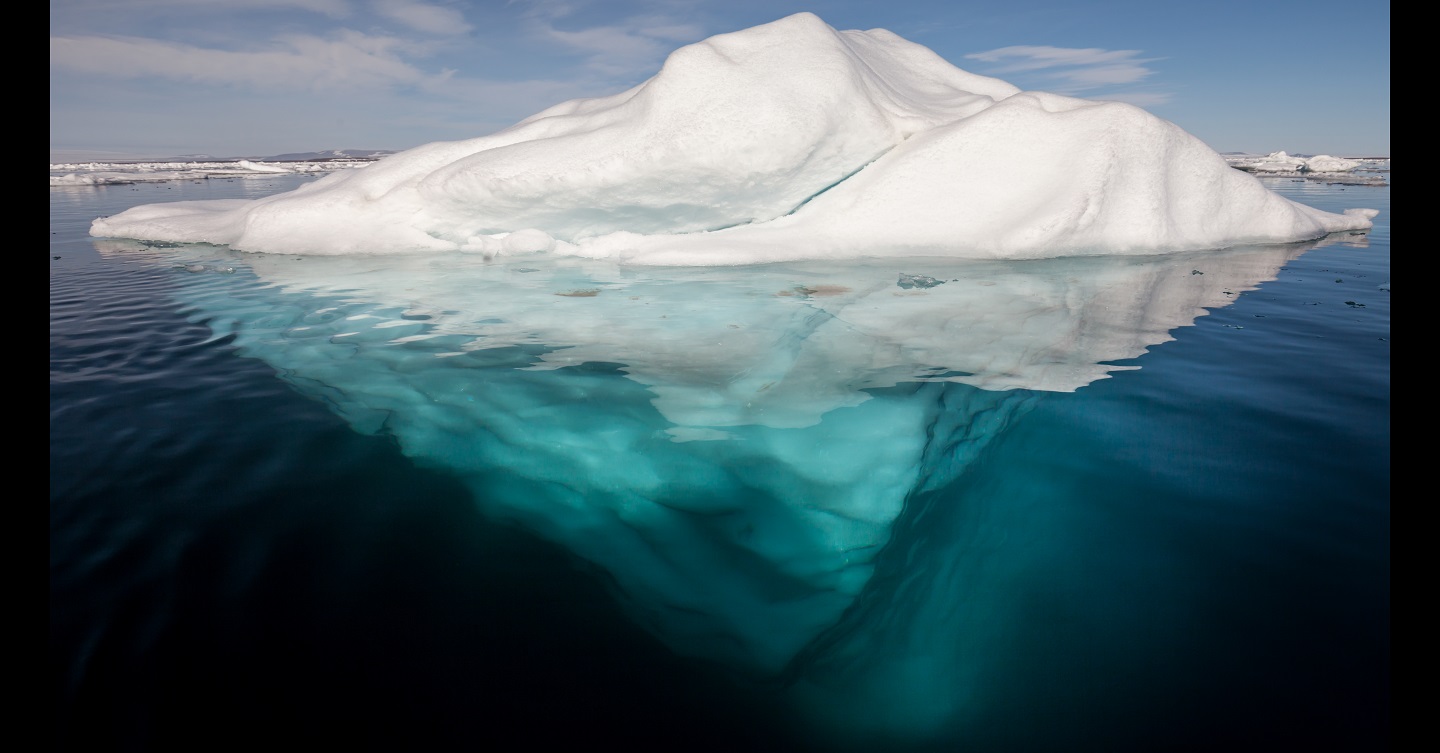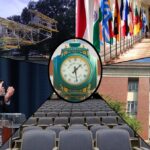
EDITOR’S NOTE: This is the first of a series of three articles coming from the 2022 Kingston Conference on International Security, “International Competition in the High North,” co-sponsored by the Army War College’s Strategic Studies Institute in conjunction with three Canadian partners.
Cooperation among all eight Arctic states has been one of the political casualties of Russia’s aggressive behavior
In Ukraine, the tide of war may be turning against the Russian Federation, despite its indiscriminate attacks on civilian targets and bellicose threats of nuclear war. This raises the question: What would be the geopolitical implications of a Russian defeat? This article explores the likely ramifications of such an outcome for the Arctic, a region in which even a weakened Russia would remain potent. History offers several models to the international community for how to treat a defeated power, and it is not too early to consider which one we should pursue. In making these predictions, this article assumes that nuclear weapons will not be used in Ukraine, the most likely scenario according to many expert and government sources. The strategic consequences if that assumption were proven incorrect are beyond the scope of this analysis.
I have previously argued that Russia’s invasion has cemented a new Arctic geopolitics of fragmentation and regional confrontation, and the outcome of the war in Ukraine will shape foreign and security policies in the circumpolar Arctic as well as in Europe. Cooperation among all eight Arctic states has been one of the political casualties of Russia’s aggressive behavior, given first the imposition of Western sanctions on Russia after it annexed Crimea in 2014, then a pause on all activities of the Arctic Council involving Russia, which currently chairs that body, after it escalated the conflict in February 2022. The Arctic is now effectively partitioned into two roughly equal halves, with “the A-7 bloc” of capitalist Western democracies (Canada, Denmark, Finland, Iceland, Norway, Sweden, and the USA), who will all shortly be NATO allies, on one side, and an authoritarian and mercantilist Russia on the other.
One cause for cautious optimism is that divided as the Arctic is between Russia and the A-7, tensions there will likely remain elevated, but at a level no higher than during the tense days of the Cold War. As was the case then, Arctic states will need to take steps such as confidence building measures to increase transparency about each other’s intentions, reduce the chance of misperception, and avoid unintended provocations. Despite Russia’s aggressive actions in Ukraine, it has repeatedly indicated its desire to maintain a peaceful and rule-governed order in the Arctic, a goal shared by all other Arctic states. The Western, NATO-aligned Arctic states will need to reassure Russia they have no or desire for Arctic conflict, and Russia, with its military weakened and demoralized by its poor performance and high casualties in Ukraine, should be eager to do the same.
As with the Cold War conflict, alongside military transparency, environmental and scientific diplomacy on issues such as regulating transboundary pollution, fisheries and shipping, and other resource extraction activities can help ease tensions between Russia and the West and smooth the way from potential conflict towards a normalized political relationship. They can also open dialogue on other important political issues which, while contentious, may still result in progress, such as promoting regional economic growth, protecting the rights of Indigenous peoples, adapting to warming Arctic ecosystems, and limiting black carbon and other climate change-contributing pollutants.
Although it may be tempting to exclude or marginalize Russia as punishment for its flagrant embrace of revanchist violence, even defeated, pan-Arctic cooperation will still require involving Russia in regional governance. The war in Ukraine does not alter this reality. Russia’s illegitimate claims to Ukrainian territory in Crimea and the Donbas should not be confused with its legitimate claims in the Arctic. Russia has roughly half the region’s land area, population, and coastline within its undisputed sovereignty. Even if, as some hope, Putin’s bungled invasion, incompetent mass mobilization, weakened international position, and correspondingly damaged domestic standing ultimately lead to his personal downfall or the overthrow of his regime, Russia will remain the indispensable Arctic state.
As the largest geographic state in the world, the largest population in Europe, steward of vast tundra and boreal ecosystems, and one of the primary global producers and exporters of fossil fuels, Russia has a key role to play in the governance of climate change, in particular. Faced with international isolation following defeat in Ukraine, Russia will be less willing or able to spoil international efforts to reduce greenhouse gas emissions. Affording post-bellum Russia collaborative opportunities for environmental cooperation and decarbonization will provide an incentive to rejoin the international and Arctic communities of nations as a constructive contributor to addressing global and regional problems. After all, with its immense northern territory, transforming landscapes, and crumbling infrastructure, Russia is on the front line of Arctic climate change, and has as great a national interest in adapting to and mitigating climate change as any country in the world. Pursuing science and environmental diplomacy can provide concrete opportunities to protect the Arctic environment, address climate change, and facilitate renewed cooperation in the aftermath of its illegal and destructive conduct.
However uncomfortable the thought of allowing Russia to fully rejoin the institutions of global governance, eventually the war will end, and the scale of our environmental and climate crises requires Russia’s active cooperation. If a weakened and defeated Russia is denied restored participation in international fora such as the Arctic Council, it will fuel the grievance towards the West that has been cultivated by its current leader, his sycophants, and propagandists. Instead of making amends for their government’s behavior, the Russian people will nourish the belief that they, not Ukrainians, are victims of aggression, and that they, not Ukraine, have been betrayed by their neighbor’s hunger for increased power and status.
France was the acknowledged perpetrator of aggression toward its neighbors, yet the other great powers also recognized that the new European order would always be unstable if France was permanently excluded from it.
In this sense, history provides two instructive lessons on reintegrating a powerful state into the international order after it has faced military defeat. In the early 1800s, when Napoleon’s wars of conquest had ravaged the continent for years, France was slowly readmitted into the European peace established at the Congress of Vienna after his final defeat in 1815. France was the acknowledged perpetrator of aggression toward its neighbors, yet the other great powers also recognized that the new European order would always be unstable if France was permanently excluded from it. Thus, after a probationary period of sorts, France was permitted to reclaim its place within the system known as the Concert of Europe, which successfully limited the outbreak of another continental war for nearly a century.
The other historical precedent is better known, perhaps because it is more recent, perhaps because its consequences were so grave. After defeat in the First World War, Germany was disgraced and abused by the Entente powers who established a new post-war international order at the 1919 Paris Peace Conference. Treated as a pariah, a politically and economically unstable Germany simmered in resentment for a generation, providing fertile soil for the rise of fascism and a second, more destructive war twenty years later. In this case, the short-sighted pursuit of revenge alongside a naïve belief that a large and powerful state could be indefinitely relegated to the geopolitical margins ultimately undermined the outcome hard-won on the battlefields of Europe. Instead of a lasting settlement all European states were committed to upholding, the order drawn up in Paris was flawed from the start by ensuring it would be resisted by one of the key states in the international system. These cases offer clear parallels and important lessons for the current crisis, if we are wise enough to heed them.
For decades, analysts have observed that external events often drive change in the Arctic and noted the risks of other conflicts spilling into the region. The war in Ukraine presents another possibility that the Arctic might play a role in resolving geopolitical tensions and reintegrating Russia into a restored rule-based international order. As noted earlier, this echoes the constructive role of the Arctic during the Cold War as a testing ground for diplomacy and international cooperation, which helped smooth the transition from the Soviet era to active Russian participation in post-Cold War Arctic cooperation. The Arctic has the potential to help restore Russia to a constructive international role. Though direct compensation to Ukraine is undoubtedly called for, by contributing to regional and global efforts to maintain healthy environments and a stable climate, Russia could make amends for its crimes against international peace and offer a form of global restitution for the harms it has caused.
A healthy and stable international order is one that holds Russia to account, while acknowledging its appropriate role as an important state capable of strengthening the international order from within or undermining it from without. Confronted by the growing threats associated with climate change that have been neglected as war, disease, and economic uncertainty have swept the world in recent years, the A-7 states would do well to consider which historical model is most beneficial: 19th-century France or early 20th-century Germany. If it survives intact, the path of 21st-century Russia will likely resemble one or the other.
Wilfrid Greaves is Assistant Professor of International Relations at the University of Victoria, British Columbia, Canada, and Lead for Climate and Environment with the North American and Arctic Defence and Security Network (NAADSN). His primary research focuses on climate change and security, Canadian foreign policy, and Arctic politics.
The views expressed in this article are those of the author and do not necessarily reflect those of the U.S. Army War College, the U.S. Army, or the Department of Defense.
Photo Description: When the polar sea is calm, the underside of icebergs can easily be observed in the clear waters of the Arctic Ocean.
Photo Credit: AWeith via Wikimedia Commons





There is a huge positive element and historical lesson in this article about Russia’s place in the world that should be applauded. The author is spot on, even if its not likely to happen in the near term.
However, I really doubt that any democratic policy leader in the West can accept the notion that Russia’s crimes in Bucca or Mariupol can be offset with some cooperation in science projects in the Artic. Much more will be required to restore Russia’s status in the international order
Many thanks for the comment! You raise a great point. It is hard to imagine in current flush of emotion when the political environment will reach such a point to allow more normal engagement. When that occurs will obviously depend a lot on many things still to happen and how they are filtered through public understanding. In short, who knows!? But it is definitely “a thing.”
Given my New/Reverse Cold War thesis (the U.S./the West, this time, is engaged in expansion; whereas, this time, nations such as Russia and China, they are engaged in containment and roll back),
“These combine with the enduring ideal of spreading the benefits of market democracy and a corresponding assumption that other democracies will embrace the US global agenda of opening markets, promoting civil liberties, and confronting organizations and states that seek to challenge the existing American international order.” (See the book “Exporting Security: International Engagement, Security Cooperation, and the Changing Face of the US Military” by Professor Derek S. Reveron; therein, at Page 2 of the Introduction chapter, look to the end of the paragraph that begins “As the United States looks ahead … ”)
“Since the 1990s the focus of American international security policy has been focused on creating conditions for extending zones of security and prosperity to other states under the theory that ‘political as well as economic globalization would make the world safer — and more profitable — for the United States.’ Consequently, the United States saw expansion, rather than retraction, of American military presence around the world.” (See the bottom of Page 2 and the top of Page 3 of the Introduction chapter of the above-referenced book.)
Given this such New/Reverse Cold War thesis:
a. A Russian defeat, today, of their current “roll back” effort in their backyard — for example — in Ukraine — this must be seen as being most similar to
b. A U.S. defeat, back during the Old Cold War, of our “roll back” initiative, back then, in our backyard — for example — in some country in Central America?
Thus, the above being a better way (rather than the France and Germany “defeat” examples described in our article above) to view the matters being discussed here?
(Herein to note that — should the U.S. have been “roll back” defeated in a country in Central America during the Old Cold War of yesterday — and/or should Russia be “roll back” defeat in Ukraine in the New/Reverse Cold War of today — neither country would/will lose much — if any — of its overall power, influence and control?)
In order to adequately look at the issues surrounding the Artic today, my New/Reverse Cold War explanation above should probably have been provided with a few more details. Here goes:
In the Old Cold War of yesterday, the Soviets/the communists represented “revolutionary” political, economic, social and/value “change” — in their case, in the name of such things as socialism and communism. In this such effort, the Soviets/the communists hoped to work more “by, with and through” the natural allies of “change,” to wit: more liberal/the pro-change elements of the world’s populations. Whereas:
In the Old Cold War of yesterday, the U.S./the West represented the status quo — and/or the status quo ante — this latter, if too much unwanted communist change had already occurred in certain places. In this such effort, the U.S./the West hoped to work more “by, with and through” the natural enemies of “change,” to wit: the more conservative/the more no-change elements of the world’s populations.
Today, the exact opposite of this is true.
In the New/Reverse Cold War of today, it is the U.S./the West that represents “revolutionary” political, economic, social and value “change” — in our case, in the name of such things as capitalism, markets and trade. In our such effort, it is the U.S./the West, today, who seeks to work more “by, with and through” the natural allies of “change,” to wit: more liberal/the pro-change elements of the world’s populations.
Whereas, in the New/Reverse Cold War of today, such nations as Russia and China represent the status quo and/or the status quo ante — this latter, if too much unwanted capitalism, etc., change has already occurred. In this such effort, it is Russia and China, today, who seek to work more “by, with and through” the natural enemies of “change,” to wit: the more conservative/the more no-change elements of the world’s populations.
Question:
If, in the Old Cold War of yesterday, the U.S./the West had sought to “roll back” the power, influence and control that the Soviets/the communists had gained in a country in our backyard — say in Central America — this, with the U.S./the West’s hope of working in that country more “by, with and through” the more conservative/the more traditional elements of that state and its societies as per our such “roll back” cause — and had miscalculated and had thereby failed there — then would this such “roll back” failure have resulted in the complete and catastrophic defeat of the U.S./the West? (If not, then the France and Germany examples provided in our article above — wherein complete and catastrophic defeat does seem to occur — these would not seem to be appropriate?)
Likewise, in the New/Reverse Cold War of today, if Russia and China should seek to “roll back” the power, influence and control that the U.S./the West has gained in their backyard — for example in places such as Ukraine and Taiwan respectively — this, with Russia and China hoping to work in those such countries more “by, with and through” the more conservative/the more traditional elements of their such states and societies as per their such “roll back” causes — and had miscalculated and had thereby failed — then would these such “roll back” failures result in the complete and catastrophic defeat of Russia and/or China? (If not, then, again, the France and Germany examples provided in our article above — wherein complete and catastrophic defeat does seem to occur — these would not seem appropriate?)
Bottom Line Question — Based on the Above:
How does (a) the (more appropriate?) New/Reverse Cold War thesis that I provide above (b) effect how we should look at the Artic today and going forward?